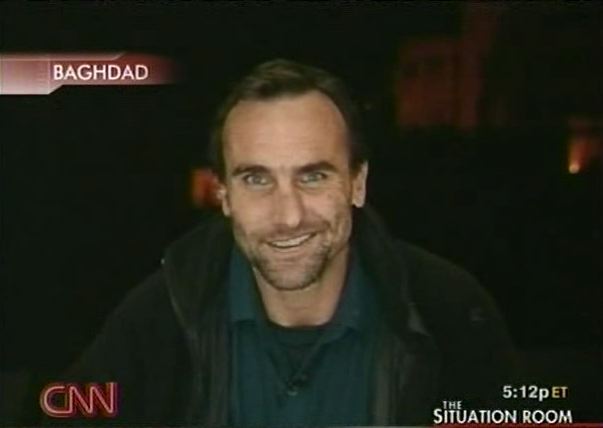TSR: "It's much more than a concern."

Click photo to play
Length: 3:23
JOHN KING: And the assassination in Lebanon raises the question, are we seeing a generalized meltdown across the Middle East? And what would it mean for U.S. policy in Iraq and across the region?
Correspondent Michael Ware joins us from Baghdad.
Michael, the big news in the region today, obviously, this political assassination in Lebanon. Help us put it into regional context. What is the impact in a place like Iraq? Is this something that emboldens the insurgents, who are trying to not only destabilize Iraq, but, some would say, destabilize the entire region?
MICHAEL WARE, CNN CORRESPONDENT: Well, directly, immediately? No.
But, indirectly, this assassination fits within a much broader picture within the region, that the insurgents, both Sunni and Shia, and all the regional actors, from Syria to Iran, and American Arab allies in the region, are well aware of.
I mean, this, right now, is a region of American malaise, during a period of U.S. strategic uncertainty. I mean, this is a time, a strategic opportunity, for all of America's rivals in this region.
And I think we're seeing certain elements within this part of the world trying to capitalize upon that. We're certainly seeing evidence of that here on the ground, certainly patterns of behavior from certain militia groups and insurgent groups, that have taken particularly directed and targeted operations that seem to be making the most of this opportunity.
KING: You mention certain militia groups.
As you're aware, our Barbara Starr is reporting today that there are some concerns in the U.S. Central Command about perhaps a splinter group within one of Muqtada al-Sadr's militias, a splinter group backed by Iran.
Based on what you see on the ground there every day, does that fit with what you're seeing? Is that conceivable, that a group within al-Sadr's militias could split off and be beholden to Iran, not to Muqtada al-Sadr?
WARE: Well, John, let me put it this way.
If Central Command is concerned that this might be happening, that's frightening, because it shows they have absolutely no reality of what's been happening here on the ground for the past year. And, in fact, I know that's not the case.
I have spoken to U.S. military intelligence here on the ground at very senior levels. They, like all of us, have been tracking the fracturing of Muqtada's Mahdi Army militia, one of the most potent and politically powerful right now here in the country.
Now, U.S. military intelligence says that, for some time, you know, Mahdi militia has been receiving millions of dollars of aid from Iran, including training, the facilitation of relationships with Hezbollah, the transfer of technology, the adoption of an Iranian-inspired template.
Now, there's been breakaway groups going on from that main body for well over a year. And, in fact, U.S. intelligence says there's now Classic Mahdi Army, there's Militant Mahdi Army, much like the IRA and the more militant Real IRA from Northern Ireland, and then there's rogue factions.
Indeed, what we're seeing is that all of them are sponsored or supported or have a relationship in some way with Iran. And now we're seeing Iran poaching Mahdi Army commanders.
So, it's much more than a concern. It's a reality we've lived with here on the ground for over a year -- John.
KING: Michael Ware for us in Baghdad -- Michael, thank you very much.
WARE: Thank you.
